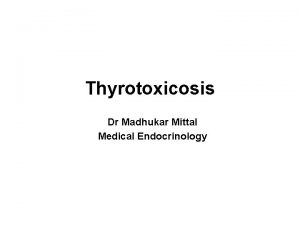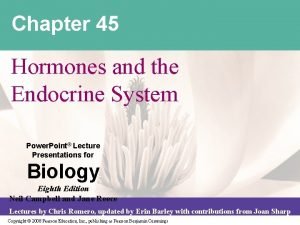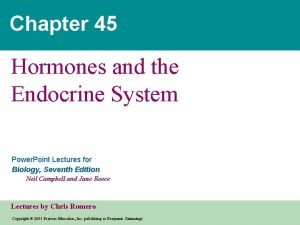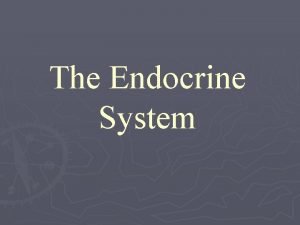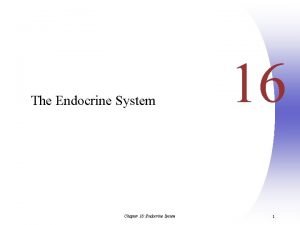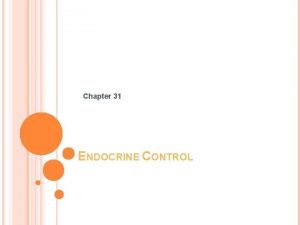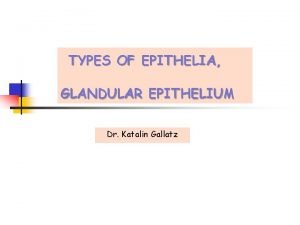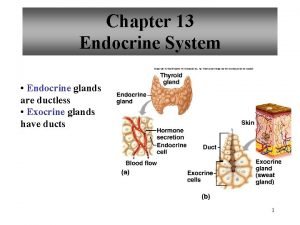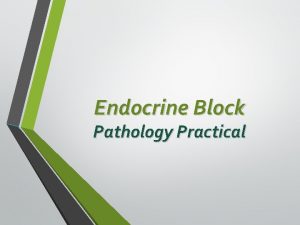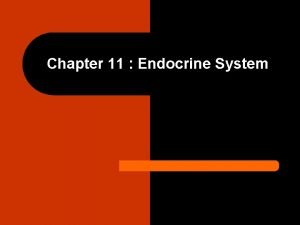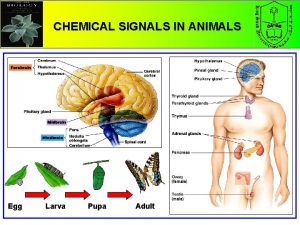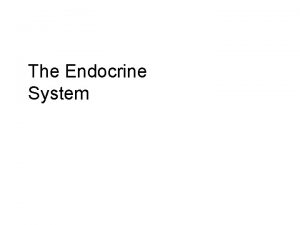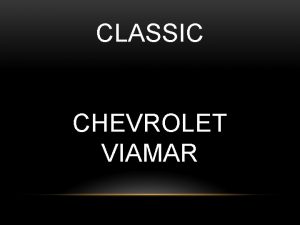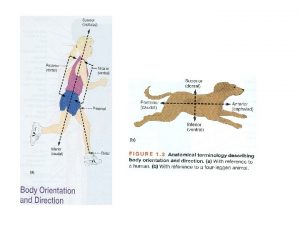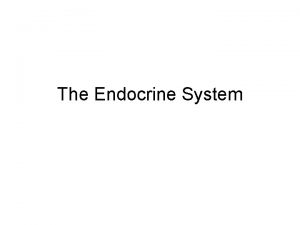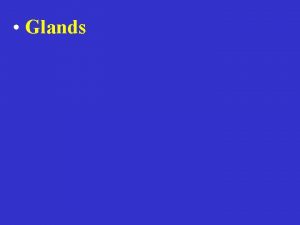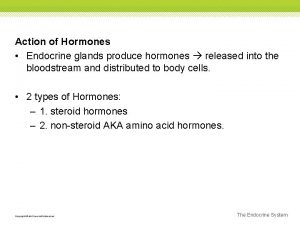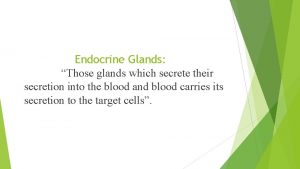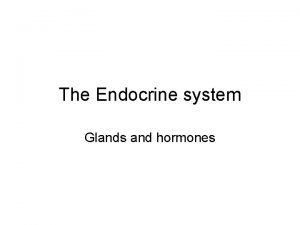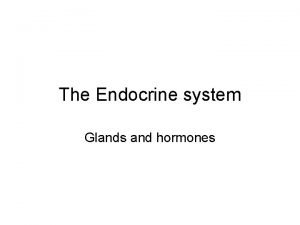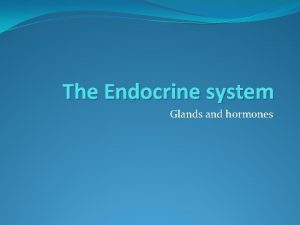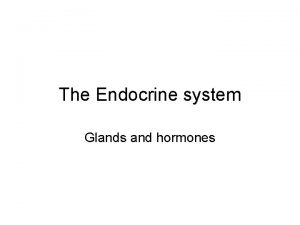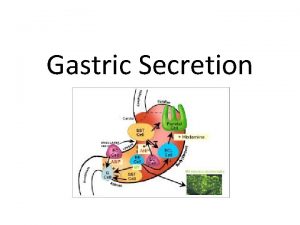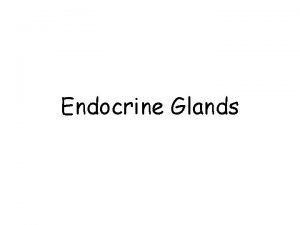Endocrine Glands Secretion and Action of Hormones Classic














- Slides: 14

Endocrine Glands Secretion and Action of Hormones

Classic Definition of a Hormone • Hormone - Chemical messenger produced by a ductless gland or tissue and carried in the blood/lymph to a target organ where it effects a change in cellular activity. Effector Cell 1 Target Cell 2 Capillary


Endocrine Glands Hypothalamus Pituitary Adrenal Gland Kidney Located at base of brain Thyroid Parathyroid Testis in Male Ovary

Ectocrine Flehmen • Pheromones: A chemical substance that is liberated by one animal and causes a relatively specific behavior modification in a recipient animal following its chemoreception

Structural Classes • Amines: – Hormones derived from tyrosine and tryptophan. • Peptides, Polypeptides and Proteins – Polypeptides • Chains of < 100 amino acids in length. – ADH. • Ex: Adrenalcorticotropic Hormone (ACTH) – 39 amino acids – Peptide - Few - Several amino acids • Ex: Gonadotropin Releasing Hormone (Gn. RH) - 10 amino acids • Oxytocin - 8 amino acids – Protein hormones: • Polypeptide chains with > 100 amino acids. – Growth hormone, Insulin. – Prolactin - 198 amino acids

Structural Classes Glycoprotein - Protein hormone with carbohydrate molecules - Steroids Lipids derived from cholesterol Are lipophilic (fat loving; can diffuse through plasma membrane) hormones. - Ex – testosterone, estradiol, progesteone, and cortisol







a. Gn. RH from the hypothalamus stimulates the release of FSH and LH from the anterior pituitary. b. FSH stimulates production of estradiol and inhibin by granulosa cells in the ovarian follicle. c. Inhibin selectively inhibits release of FSH d. When progesterone is low, high concentrations of estradiol stimulate a greater surge of Gn. RH, FSH, and LH, a positive feedback control. e. LH stimulates production and release of progesterone by granulosa cells in the corpus luteum f. High concentrations of progesterone inhibit the release of Gn. RH, FSH, and LH, a negative feedback control.
 Dr madhukar mittal
Dr madhukar mittal Calcitonin and pth are antagonistic hormones
Calcitonin and pth are antagonistic hormones Nontropic hormones
Nontropic hormones Major endocrine glands male and female
Major endocrine glands male and female Major endocrine glands male and female
Major endocrine glands male and female Difference between endocrine and exocrine glands
Difference between endocrine and exocrine glands Whats the difference between endocrine and exocrine glands
Whats the difference between endocrine and exocrine glands Merocrine gland
Merocrine gland Endocrine and nervous system comparison
Endocrine and nervous system comparison Pathology
Pathology Hypothal
Hypothal Endocrine glands
Endocrine glands Endocrine glands secrete
Endocrine glands secrete Endocrine glands
Endocrine glands Hyophysis
Hyophysis
